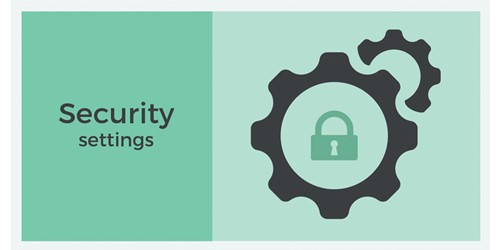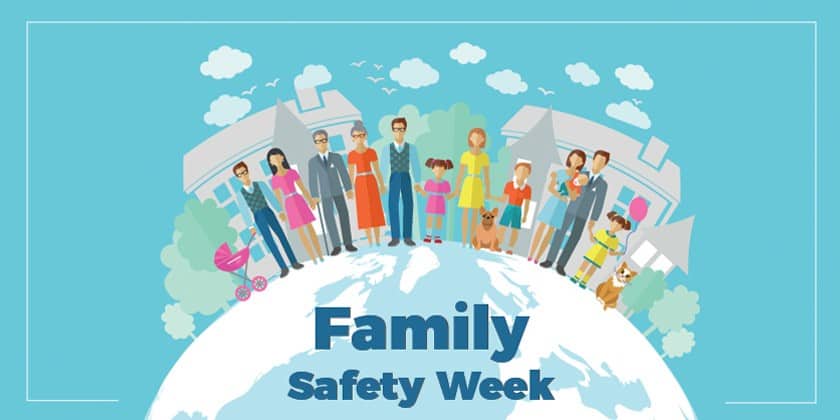Semana de la Seguridad Familiar
Con el 90% de los hogares del Reino Unido con acceso a Internet, es fácil reconocer que Internet es una herramienta beneficiosa para personas de todas las edades en todo el mundo. Sin embargo, puede ser fácil olvidar el tema de la ciberseguridad y las desafortunadas caídas que conlleva este mundo cada vez más conectado.
Con esto en mente, y teniendo en cuenta que esta semana es la Semana de la Seguridad Familiar, hemos reunido algunos consejos para ayudarle a usted y a su familia a estar seguros en Internet.
Compruebe su configuración

¿Sabes quién puede ver lo que publicas en Internet? Si no es así, comprueba tu configuración de privacidad y seguridad, y habilítala para que sólo tus familiares y amigos puedan ver tus páginas y publicaciones. Difunde este consejo entre tus allegados y anímales a que también refuercen su configuración de privacidad. Incluso si tu perfil es privado, la información personal que has compartido con otros, podría ser accesible a través de las páginas de amigos, como se ha puesto de manifiesto recientemente a través del escándalo de Facebook y Cambridge Analytica.
Proteger la información personal

A veces, en las redes sociales, la gente tiende a compartir demasiado sin darse cuenta. Añadir tu fecha de nacimiento puede parecer inofensivo, pero este único dato puede abrir las puertas a que un desconocido encuentre más información sin ti. No publiques tu dirección, número de teléfono móvil, dirección de correo electrónico y fecha de nacimiento en Internet.
Tenga cuidado con lo que publica y comparte

Ten cuidado con las fotos y los vídeos que publicas y compartes en Internet. Una vez que publiques una foto en línea, puede que ya no sea tuya, y puede ser difícil -si no imposible- retirarla por completo. Piénsalo dos veces antes de publicar cualquier contenido que pueda ser útil para un ciberdelincuente. Evita publicar fotos y vídeos relacionados con tu casa, trabajo o escuela.
Crear contraseñas seguras

Para garantizar la seguridad de sus contraseñas, debe hacerlas lo más creativas posible (pero memorables) y, por supuesto, cambiarlas con regularidad. Evite crear contraseñas que incluyan información personal sobre usted, ya que pueden ser más fáciles de adivinar. Puede ser difícil mantener al día todas las contraseñas, sobre todo si tienes varios inicios de sesión en numerosas cuentas. Para ayudarte, utiliza gestores de contraseñas que te ayuden a evitar la reutilización de contraseñas entre sistemas.
Investiga

Cuando se utiliza un nuevo sitio web para comprar, la investigación es clave. Asegúrese de leer los comentarios y ver si otros consumidores han tenido una experiencia positiva o negativa con el sitio.
Asegúrese de que es (https)seguro

Cuando navegue o compre en línea, compruebe que el sitio está habilitado para la seguridad. Si comienza con "https" en lugar de "http", esto indica que el sitio está utilizando medidas adicionales para ayudar a proteger su información.
No des demasiada información

Al suscribirse a los boletines de noticias o registrarse en un sitio web, normalmente se le pedirá que rellene un formulario o que proporcione alguna información personal. Cuando rellene estos formularios, pregúntese si la información que le piden es realmente necesaria y por qué razón. No es necesario que facilite toda su información: proporcione siempre la mínima información posible.
Actualizar el software antivirus

Asegúrese de tener instalado el último software antivirus en su ordenador, ya que el software obsoleto puede dar lugar a numerosas vulnerabilidades.



